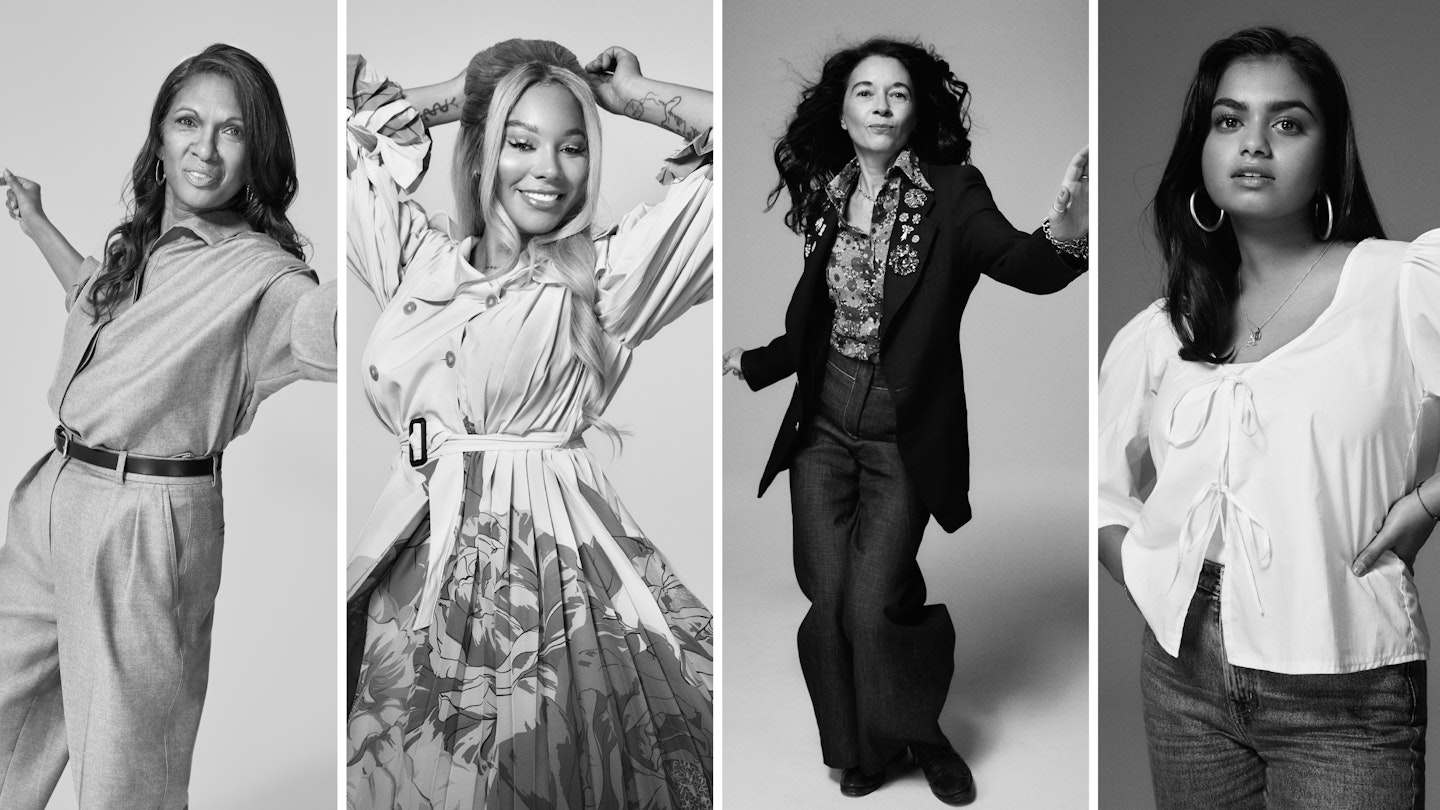Gina Miller
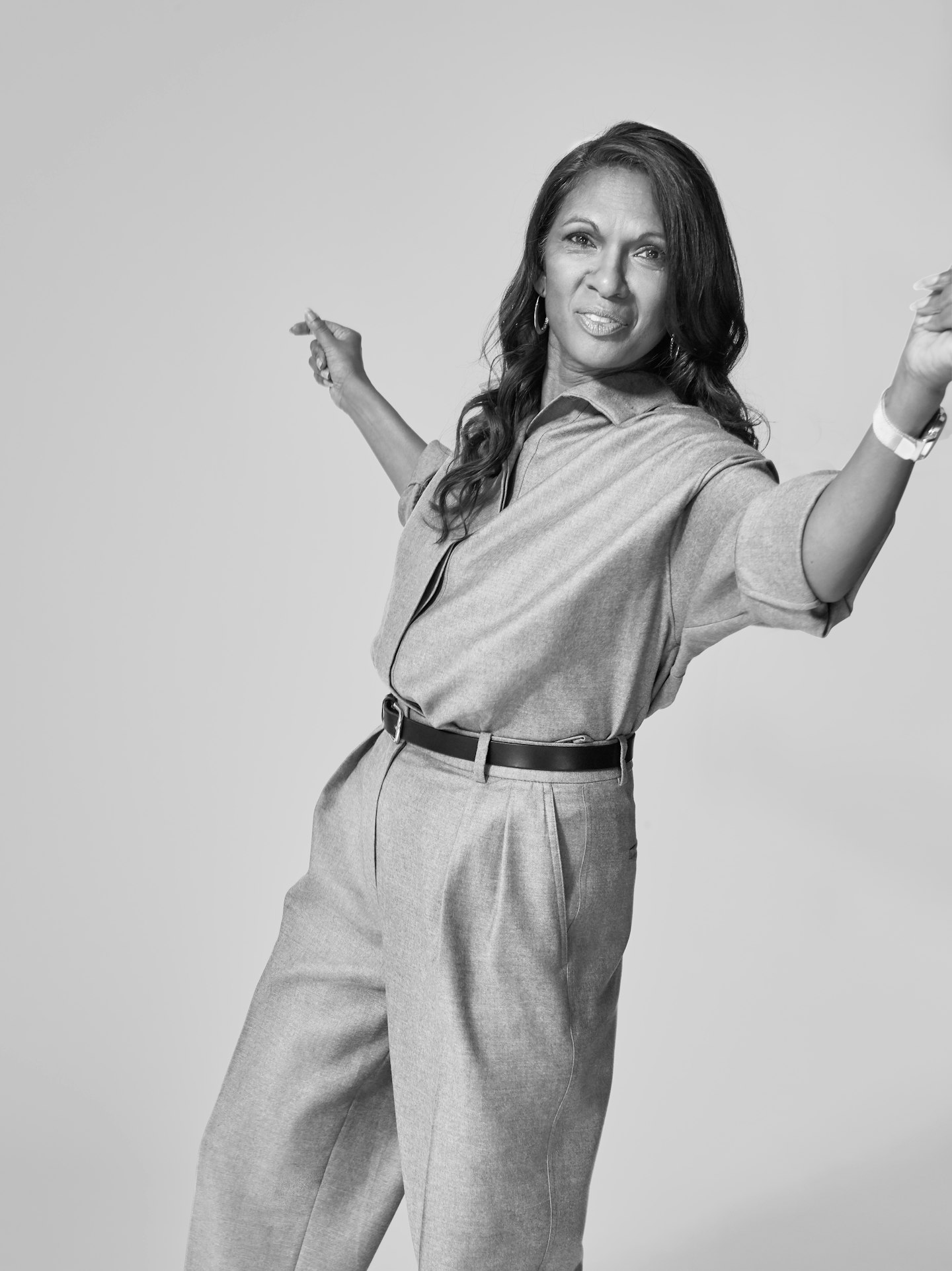
The Transparency Campaigner
‘i grew up in British Guyana and watched children play in the streets wearing rags and with no shoes on their feet. I had a wardrobe of clothes and it felt wrong, so I sneakily gave them some of my dresses. That’s my first memory of having a sense that something wasn’t fair.
Since then I’ve spent my life campaigning on a range of issues and rose to prominence when I led the legal challenge against the Government in favour of giving MPs a say over triggering Article 50 – the legal mechanism taking the UK out of the EU. The morning after the referendum vote in 2016 I was distraught; not because Leave had won, but because I knew from months of campaigning that neither side had a plan of what would happen next. I thought somebody, somewhere was going to say something. But no one did.
That’s the thing with activism; people tend to assume they can’t make a difference, someone else will do it or something simply can’t be true. What I’ve found is the simplest questions are the ones people are the most afraid of asking. So I stood up and fought for our parliamentary sovereignty. I thought more people would join me, but they didn’t.
When Boris Johnson suspended Parliament in September I realised I was going to have to do it again. Once more, the highest court in the country ruled in my favour. I’ve never been afraid to ask the simple questions because they tend to be the ones that lead to huge consequences. Unless you call things out, injustices will continue to happen. It can be overwhelming to know where to start, but I don’t tend to look at things in their entirety, I take one step at a time. I’m proud my activism has created an environment where a Prime Minister can’t put themselves above the law now. We live in a democracy and my actions have preserved that. I’ve also found timing is crucial: I first started talking about the need for companies to take more responsibility when it comes to the environment nearly 10 years ago, but the oxygen for the conversation wasn’t there then. Now the timing is right and the world feels ready to address these issues. I’m hoping to get back to campaigning on other issues close to my heart soon.
People tend to assume they can't make a difference - that someone else will do it...
The danger of activism becoming a trend, though, is that our views become black and white and we make short-term decisions because of the pressure to belong to a certain group or who shouts the loudest. That’s not the best way. We need to inform ourselves fully and look at all the possible solutions first. Being an effective activist isn’t an easy job. Sometimes the most successful activists are the ones who know how to bring people together or can provide the background knowledge to give others a voice.
Unfortunately, things appear to be going backwards in terms of respect for female activists and strong female voices. I’ve had my fair share of abuse and I’ve learned, if you’re a woman who sticks her neck out, you have a Teflon coating, know what you’re getting into and accept your weaknesses, faults and failures – then no one else will be able to break you down. I’ve spent a long time working on myself and discovering what my weaknesses are. Now, if someone calls me a difficult woman I can say, you’re probably right, and so?
What I didn’t expect was the sheer volume of the daily death and gang rape threats and, most recently, discovering someone set up a crowdfunding page to hire a hitman to kill me. Much of this abuse is related to my race, not just my gender.
It makes me cry. It gets to be too much and I need to let it out. But then I get up and carry on. I’m pretty good at compartmentalising the abuse I get, but what hurts the most is the fact my three children are so often dragged into it. They’re the target of kidnapping and death threats and that is truly heart-breaking. We’ve been living on high alert for four years now and it’s exhausting.
I’m not a public figure so there’s only so much the police can do, which means I’ve spent hundreds of thousands of pounds of my own money over these three years, when you add up the legal costs, security and people to support me. One of the attacks often thrown at me is that I’m privileged, or that it can’t possibly be my money. Yes, I’m lucky I can afford to protect myself, but my family and I barely go out any more. Saying that, I think one of the most important things we can do is to be involved and responsible in the society we live in. Like anything, activism takes practice. But my philosophy is simple: I wake up and I think I’m going to do my best today.’ AS
## Orsola De Castro
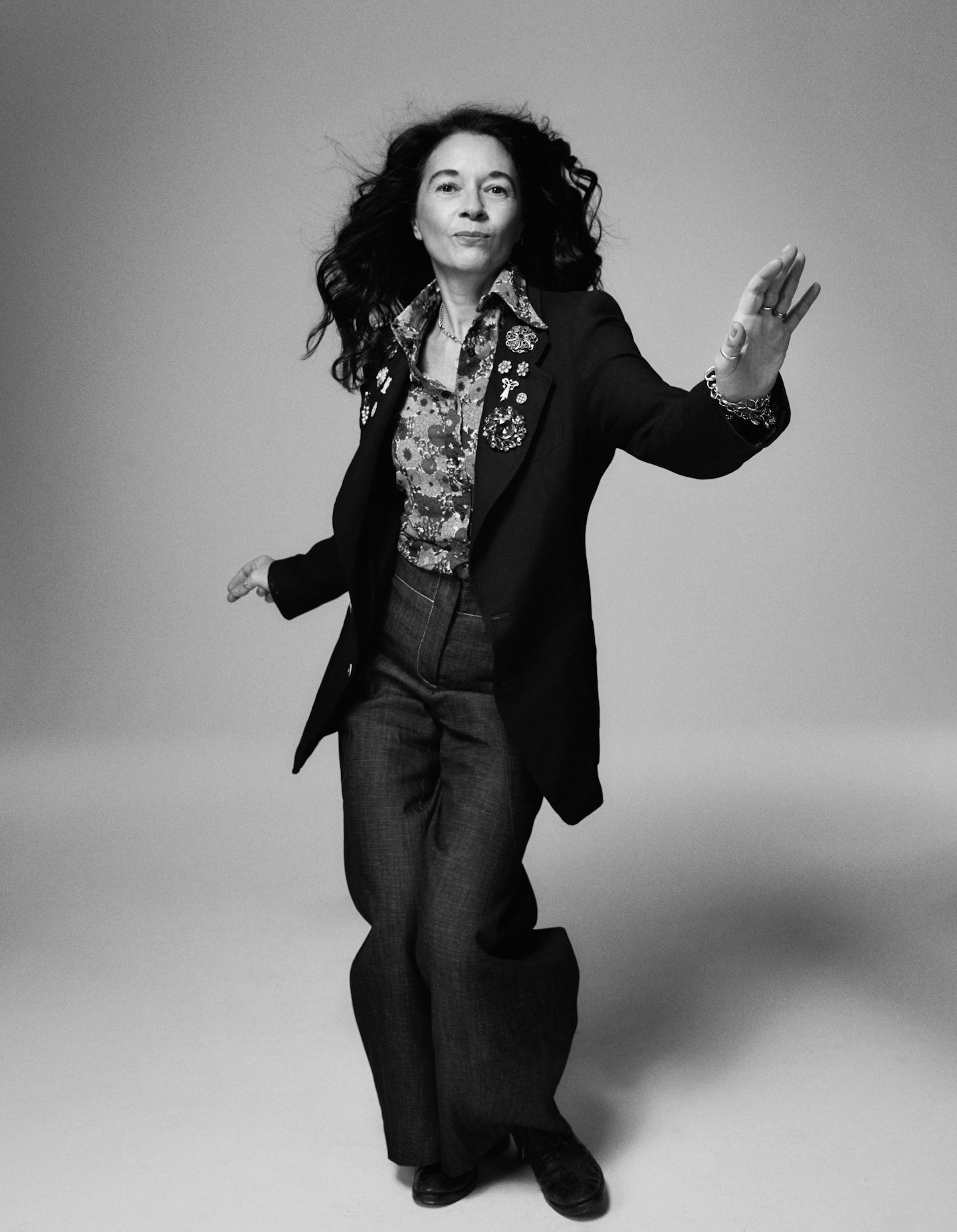
Fashion activism starts everyday when you open your wardrobe
The Environmentalist
‘‘I think i was born an activist,’ says Orsola de Castro, co-founder of Fashion Revolution, the global environmentalism movement she established with Carry Somers after the Rana Plaza tragedy in 2013, which killed more than 1,130 garment workers. With Fashion Revolution, Orsola works to make the industry more transparent. It employs the hashtag #WhoMadeMyClothes. ‘It’s a simple question no one can answer,’ she says. ‘It’s so important to study labels. Would you buy a yogurt without knowing when it goes off? No. So why buy a piece of clothing without knowing if it’s cotton or polyester?’
For Orsola, loving fashion while hating some of its murkier machinations isn’t an oxymoron; Fashion Revolution’s ‘pro-fashion’ approach doesn’t shame the consumer. ‘We firmly believe that the onus for change is on brands to become accountable and governments to legislate,’ she explains.
Nor does Orsola agree with demonising fast fashion while letting the luxury sector ‘get off scot free. The entirety of the industry needs to be called into question.’ She admits that ‘we activate when we’re pissed’. What’s riling her right now is that ‘we’ve spent 20 years giving in to scepticism’. But there are also reasons to feel galvanised, like the ‘incredible surge of young designers wanting to put their creativity at the service of something rather than the disservice’.
So how can budding Fashion Revolutionaries join the fight? ‘Do some research, listen to your gut, find out what’s right for you. That, and stop thinking of the supply chain as some other land and takeresponsibility for the clothing we own: love it, wear it, repair it. Fashion activism starts every day when you open your wardrobe.’ LAJ ‘ fashion activism starts every day when you open your wardrobe’ LAJ
## Munroe Bergdorf
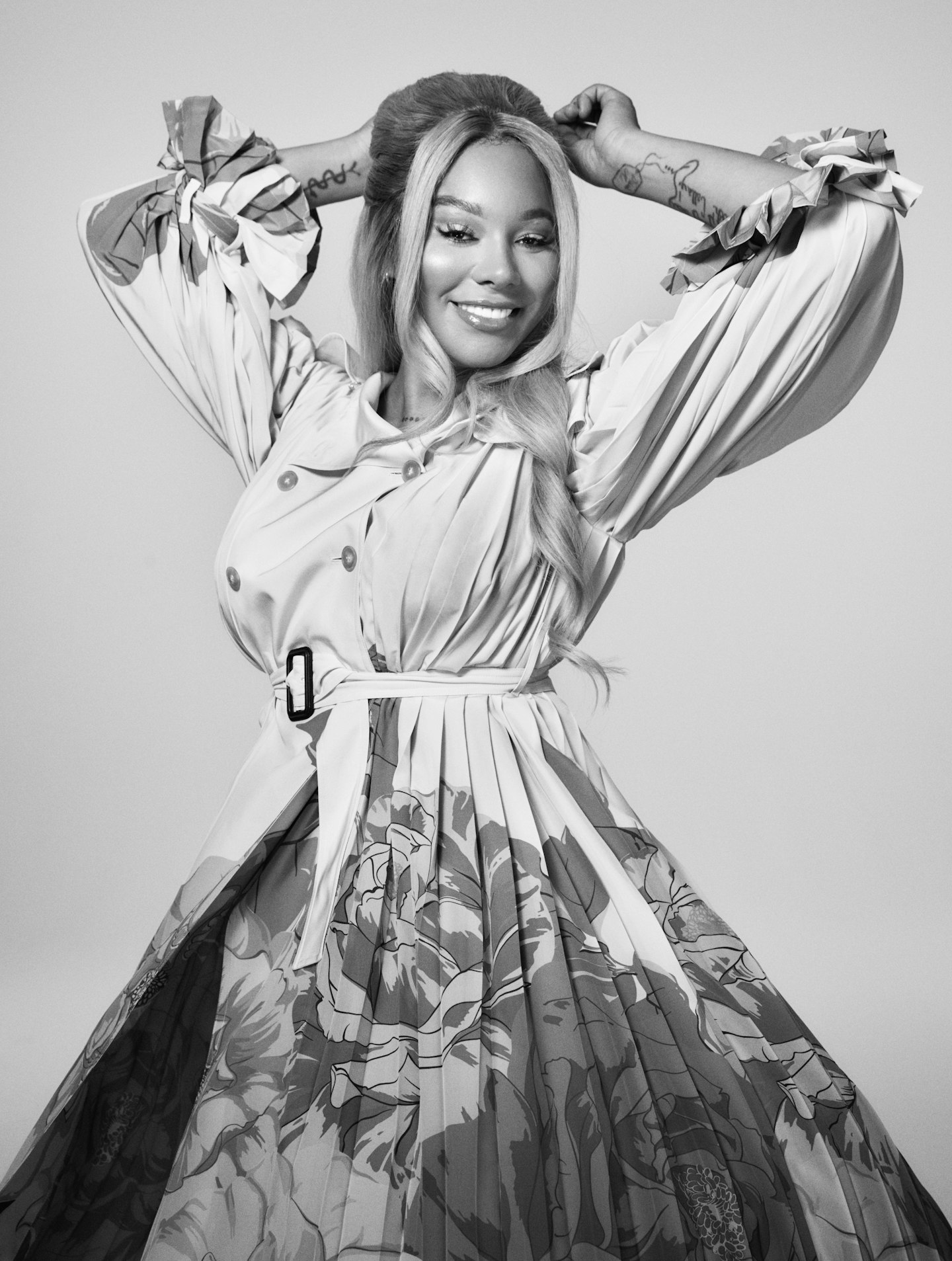
It's not just about one group doing all the work, it's about all of us doing it
The Model And Trans Advocate
MUNROE BERGDORF is twirling around in a Valentino floral dress on the Grazia photo shoot, laughing and living her best life. And why shouldn’t she? ‘So much of my work is showing that trans women are normal people. We are multifaceted. I can do Playboyand a Ted Talk. Women are underestimated as a gender, but trans women are especially underestimated,’ she says.
The model, who has become a prominent face of the trans rights movement, alongside other global voices such as writer Janet Mock and actress Laverne Cox, has spent the past 10 years of her career speaking out about issues around trans equality, inclusivity and feminism, amassing a social media following of more than 228,000 people in the process, and in turn building a community of engaged change agents in the making.
‘I transitioned 10 years ago at a time when there wasn’t a lot of information about what it means to be trans out there. So I ended up having to speak up for myself and it just became second nature,’ she says. ‘The act of speaking up has been so heavily intertwined with my identity, simply because there aren’t a lot of us out there. But it does become frustrating having to explain yourself, not just once but every single day. You become exhausted.’
So Munroe relies on her vast community of allies to bolster her when the trolls – and as a trans woman of colour, she faces many – inevitably attack. ‘If I didn’t have the support of other black women, the queer community and other trans people it would be extremely difficult. It’s about not going it alone.’
She says this is the key to creating change, whether it be in the fight against climate crisis or in the quest to build a more inclusive fashion industry. ‘It’s not just about one group doing all the work, it’s about all of us doing it. Systemic oppression has always been organised. If we hope to overthrow that we need to work together. It’s about not going it alone.’ KH
## Amika George
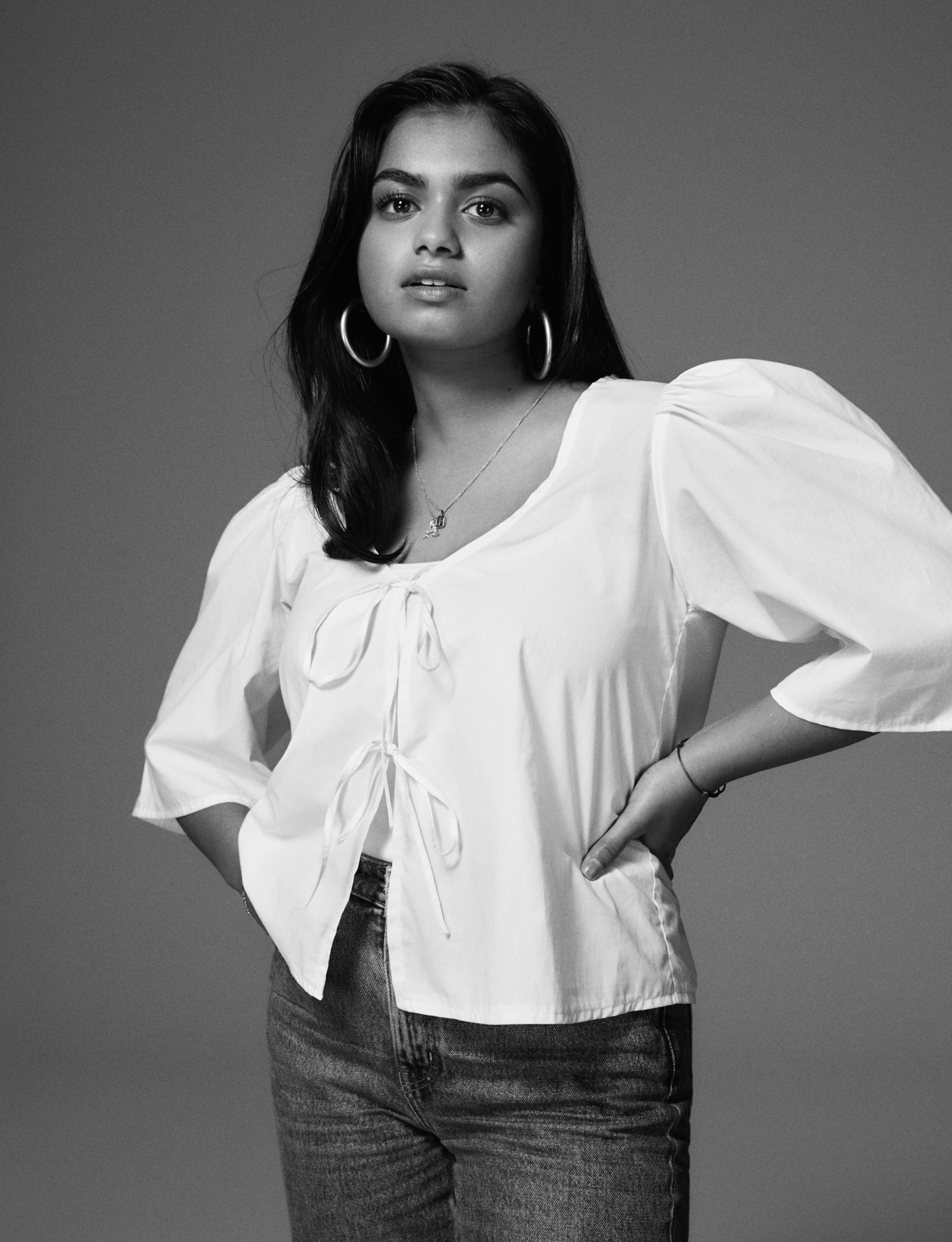
Big decisions are being made about our future by people who won't see the consequences
The Period Poverty Activist
How did you spend your teenage years? Probably not running a campaign to end period poverty, lobbying the Government for free menstrual products or putting on club nights at university, where students dress as tampons and dance under banners that say ‘stop taxing our periods’. But that’s what 19-year old Cambridge student Amika George can add to her CV.
In 2017, she started the #FreePeriods movement (with a petition that has garnered 300k signatures) after realising some girls have to skip school because they can’t afford menstrual products. She assumed the Government would do something. It didn’t.
The fact it is a gendered topic only infuriated her more. ‘As if the issues that affect us aren’t being acknowledged,’ she says. ‘It was out of that lack of response that I felt as if I had to respond.’ She thinks we’re at a crucial time for activism, where young people are particularly politically engaged. ‘Maybe it’s the state of the world now and the fact that it seems a lot of big decisions are being made about our future by people who aren’t necessarily going to see the consequences,’ she adds.
Is it thrilling or frustrating that people like her, Greta Thunberg and Malala Yousafzai are having to mobilise communities instead of politicians? ‘In a lot of ways, it’s really cool and exciting,’ she says. ‘But it’s also scary and worrying.’ Because of Amika, the Government has pledged to provide free menstrual products in schools and colleges in England from 2020. She’s excited that activism has become accessible and youth-led; something she thinks social media has played a big part in. She sometimes worries about the commercialisation of issues, but rationalises that if it means an important message is getting exposure, then ‘it’s beneficial’.
So how should a novice get started? Get on with it, use social media and find a community to work with, she advises. Crucially, she’s hopeful activism isn’t going anywhere. ‘It’s just going to become something that’s more and more mainstream and normalised in society so we won’t even think of phrases like “year of the activist”, because everyone will be an activist. That’s my dream,’ she says. AS
## Sharmaine Lovegrove
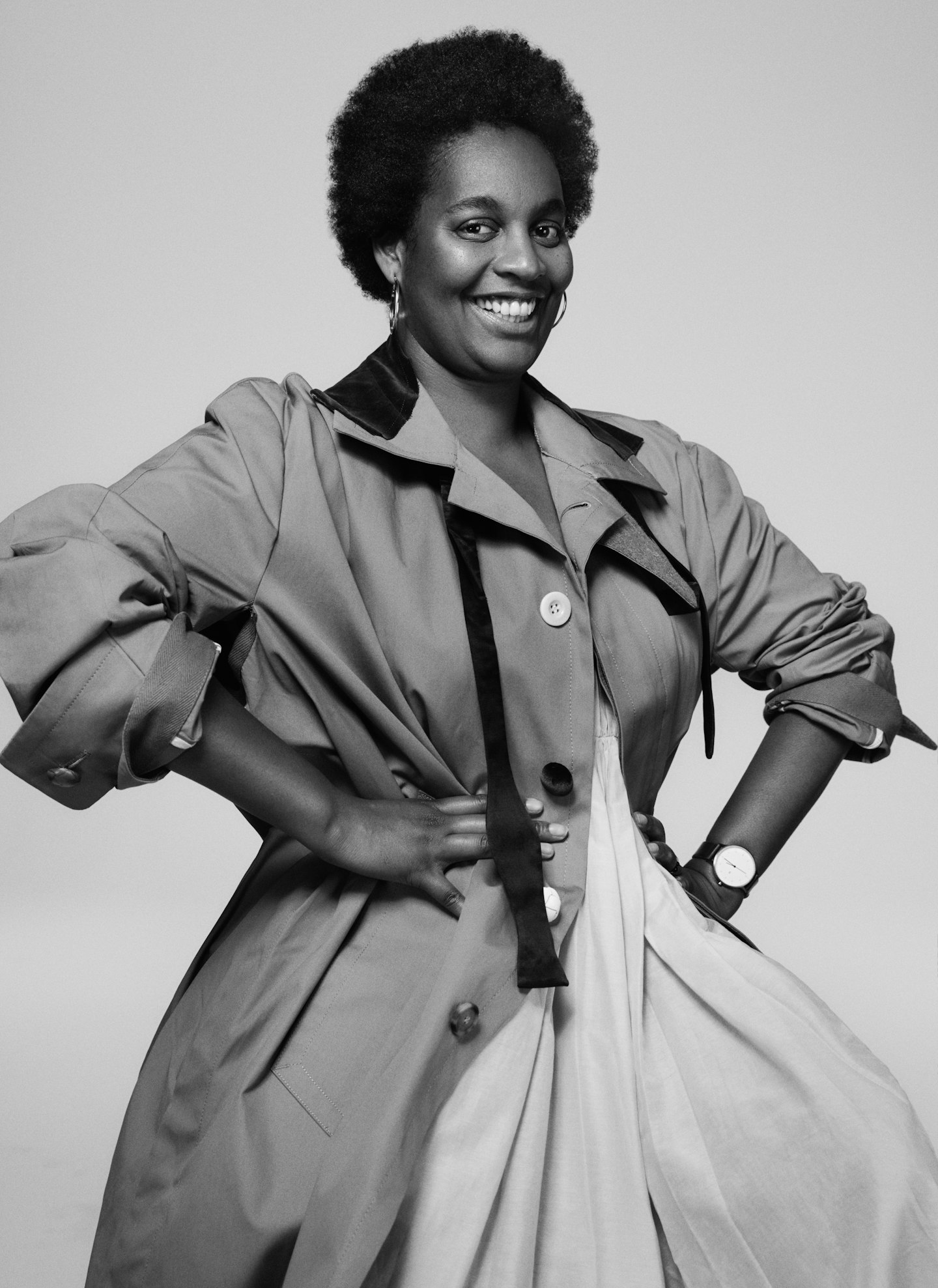
We must make people confront their biases
The Publishing Disrupter
Making people confront their biases is one of the biggest things that we can do as activists.’ So says Sharmaine Lovegrove, who is creating a more inclusive publishing industry through her imprint, Dialogue Books. After years of running her own business – a bookshop in Berlin and a company that found books for film and TV adaptation, she realised different people’s voices were not being heard through books. So she founded a publishing imprint dedicated to publishing people from LGBTQI+, disability, working-class and Black, Asian and minority ethnic (BAME) backgrounds.
‘It was never my dream to be a publisher, but it became clear that something needed to change,’ she says. ‘I think that when you’re quiet, you’re complicit. Too many conversations happen around the dinner party table and too many conversations are happening in bars, but they’re not actually taken to the street.’
She points out that ‘a lot of people who would say they are activists haven’t actually been through anything and there isn’t enough anger. We need a shift in society for there to be greater impact to understand that it’s not about being an armchair activist and walking through London for a cause, it’s about fighting with passion and creating change.’
With 12 authors published by Dialogue in two years and a further 25 to be published between now and 2020, it’s clear she’s shifted the conversation and already made tangible change. But what should we do to make sure it isn’t temporary? ‘Some people have to understand that things were incorrect in the first place. Although there is more understanding of inequality, they don’t want to feel complicit in it. So we have to remind them that we can only do this together,’ she says. AS
## Sophie Walker
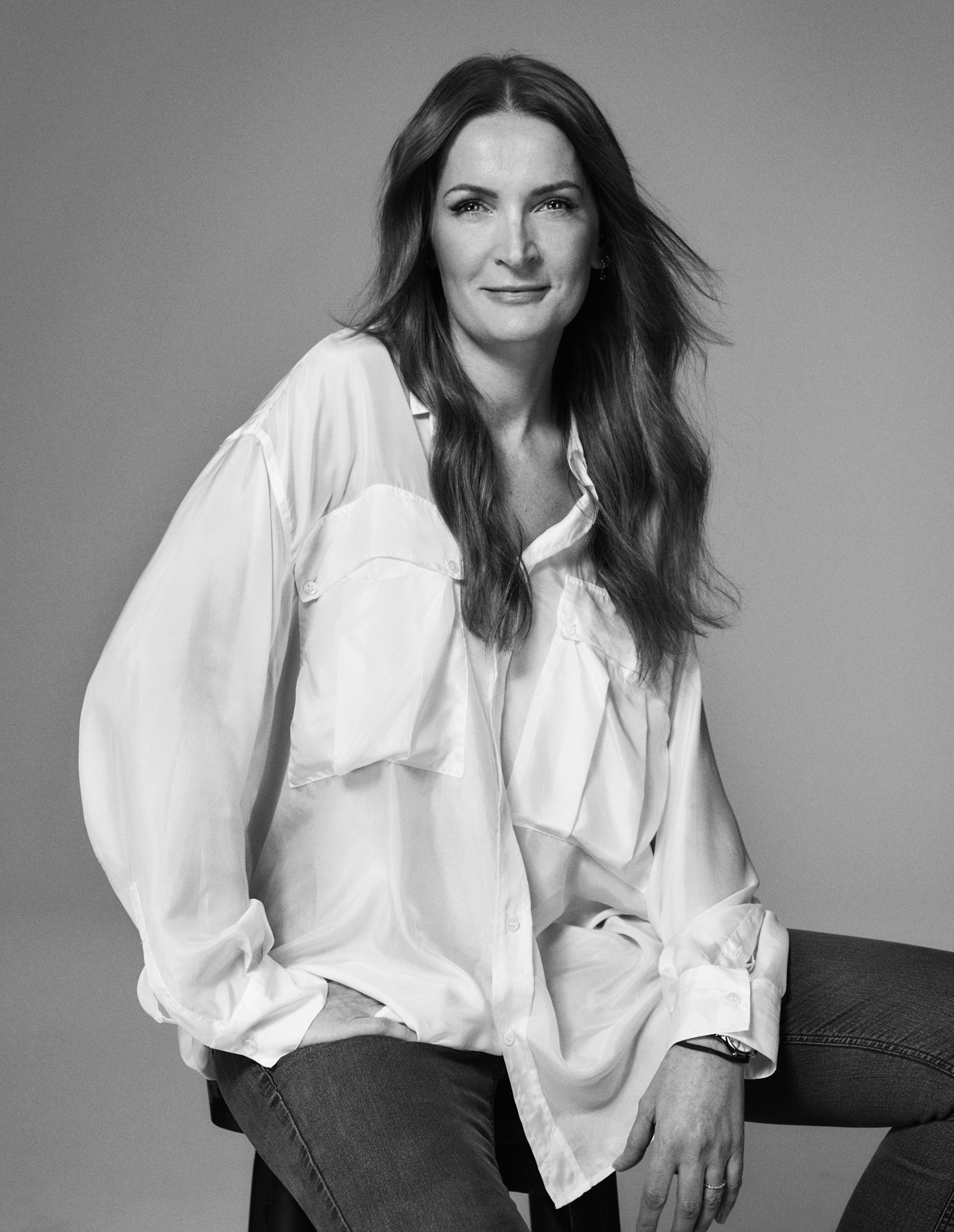
Hope is the ultimate act of defiance
The Feminist Organsier
Sophie walker is on a mission to persuade women who feel disheartened by the scale of an issue they want to change that ‘hope is the most important tool of any activist, because it is the ultimate act of defiance’. She was the founding leader of the Women’s Equality Party and is now chief executive of the Young Women’s Trust (YWT), which supports women on low pay, and believes it’s important to work together for change.
She thinks the recent energy and awareness around activism – which research by YWT shows could be a result of young women losing confidence in politicians – should be celebrated. Social media is also to thank for creating movements that are ‘accessible to many more people than can actually physically make it out to a march’, she says.
An increasing number of women are proudly proclaiming their feminist credentials across T-shirts or on Instagram. Sophie warns against dismissing activism as a trend. ‘There’s something important about beingcomfortable to call yourself a feminist and wearing a T-shirt that says so,’ she says. ‘It feels as if activists are being scrutinised for everything they do. But now is the time to say what you believe loudly and clearly. Fail up, because the alternative is to fail by doing nothing.’ AS
## Naomi Shimada
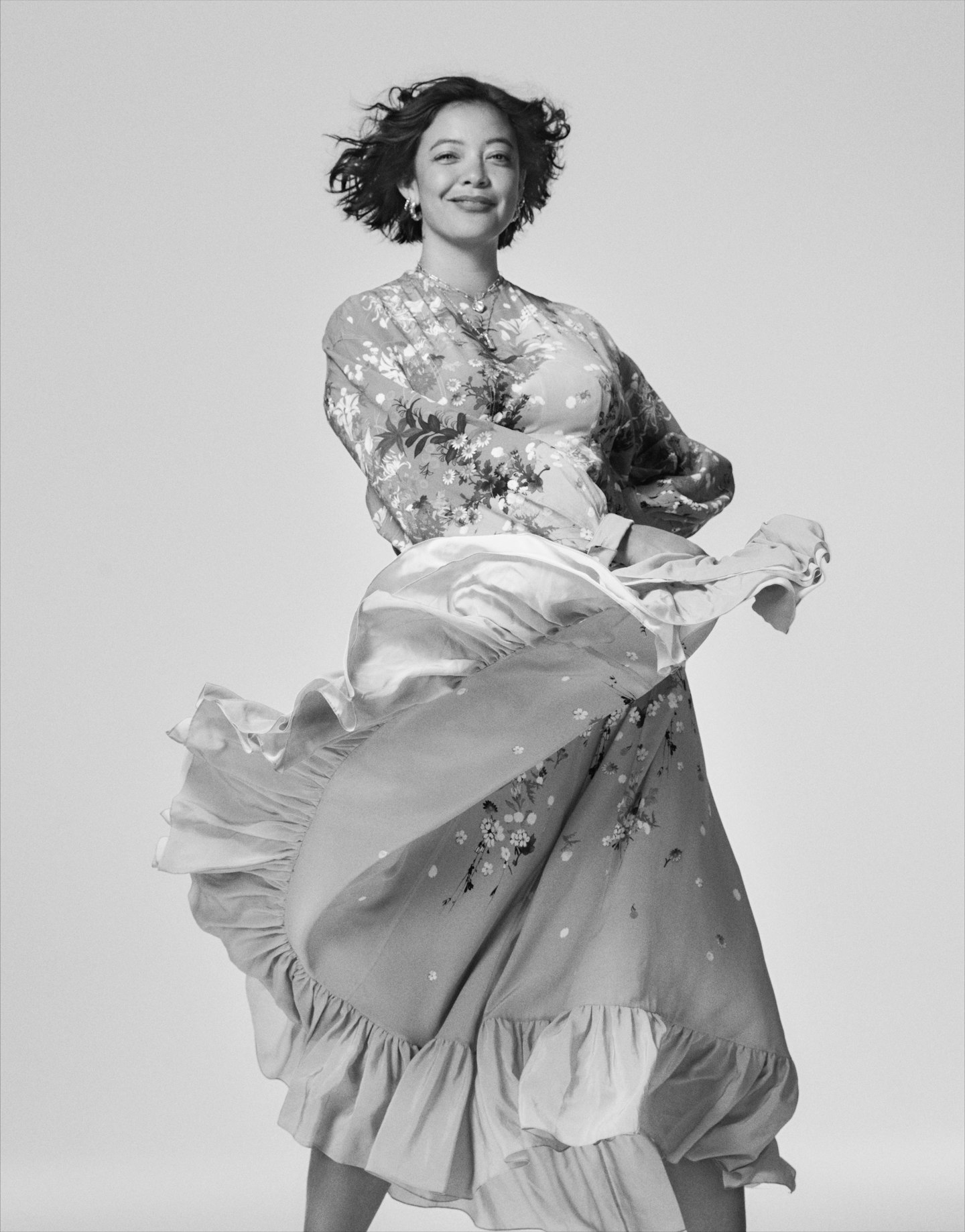
It's about freedom, expression and being who you want to be
The Model Turned Social Commentator
If naomi shimada was to define her relationship status with Instagram she’d probably have to plump for, ‘It’s complicated.’ Her own feed might exude good vibes, but she isn’t immune to the insecurity it can generate. So much so that, last year, she co-authored a book, Mixed Feelings: Exploring Modern Life And The Internet, which ‘spoke openly about how I don’t want to “perform” my own life’.
Today she explains, ‘We’ve all commodified ourselves, but there’s a united feeling that things cannot go on as they are. Especially the lies social media sells us about success. Why are you comparing yourself to Kylie Jenner and her Bugatti?’ she quips. ‘She’s a child trillionaire!’
The irony is, however, that her own feed is a source of empowerment for her 79k followers, partly because Naomi, who has modelled for a decade but happens not to be a sample size, radiates exuberant confidence. Not that she thinks it’s a big deal. ‘I’m so much more than just a body. I’m smart, opinionated, I care,’ she says. ‘But, especially as women, you could have three masters degrees, be an opera singer, go to the moon, and people would still call you out on your looks! We have to fight that narrative.’
She’s also anxious about the terminology, citing the way ‘body positivity’ has been commoditised or co-opted ‘by every girl in yoga pants on the beach’. Another label that causes her discomfort is ‘activist’. ‘We give it away too lightly,’ says Naomi, preferring to talk about advocacy. ‘I was just a person in the industry who was frustrated. I got branded an activist for having an opinion, but I’m not on the front line of anything,’ she says. ‘Freedom, expression and being exactly who you want to be – if anything, that is what I stand for. I think people connect to me because I don’t live a version of someone else’s life. I live my own life, exactly how I want to live it.’ LAJ
## Richard Malone
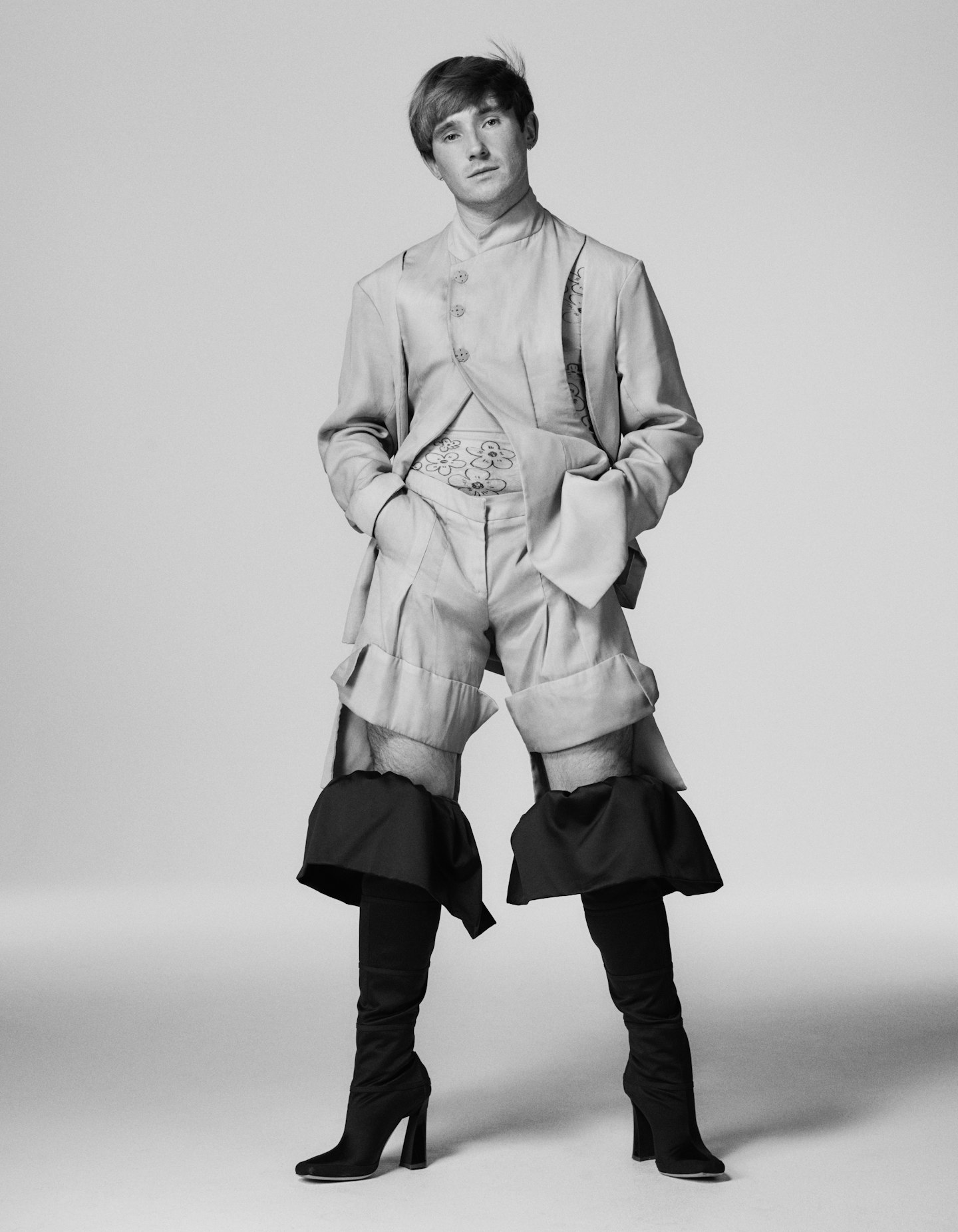
You shouldn't have to chose between ugly clothes and saving the planet
The Sustainable Design Leader
RICHARD MALONE dresses a coterie of indisputably innovative women – architects, writers, Björk – but the one who’s inspired him the most is perhaps his late grandmother, Nellie. His S/S ’20 collection was a touching tribute to the ‘totally forward-thinking, quite radical’ woman he grew up next door to near Wexford, Ireland.
You can see her influence in his socially conscious attitude – Richard has become one of sustainable fashion’s most powerful voices. Last year, ahead of the Irish referendum to repeal the Eighth Amendment, which effectively banned abortion, Richard would head home to Ireland every couple of weeks to campaign with Nellie, going from door to door and speaking to people. ‘It was quite hard-core but those conversations are really important. Just opening the dialogue changes people’s perceptions so much.’
Nellie helped cement Richard’s conviction that making a difference ‘is not about an ad campaign or a following’. He doesn’t measure his success in likes, and Instagram is no substitute for grass-roots campaigning. ‘It’s almost like you have the ability to be loud. But in a room where everyone’s shouting, I don’t know if it really gets heard.’
In an industry where people clamour to appear #authentic, Richard radiates genuine authenticity. He’s fearless, outspoken on everything from class and education (‘£9,000 a year is a huge amount of money… everyone should have the opportunity’), to fashion’s woman problem (‘there’s a patriarchal way of discussing women’), to big brands’ greenwashing (‘making it look like they’re single-handedly saving the Amazon’).
An issue Richard has been consistently ahead of the curve on is sustainability. He has a thriving made-to-measure business and works with recycled and deadstock fabrics, without compromising on cut and quality. ‘You shouldn’t have to choose between ugly clothes and saving the planet,’ he explains. Unsurprisingly, Richard knows that clothes can talk. He wore a Repeal badge to meet the Queen when at London Fashion Week, and a ‘Fuck Boris’ T-shirt when he took his bow at the end of his September show. ‘I really had to wear that,’ he laughs. LAJ
READ MORE
[READ: What Does It Mean To Be A Woman?](https://graziadaily.co.uk/life/real-life/international-womens-day-being-a-woman-in-2019/)
